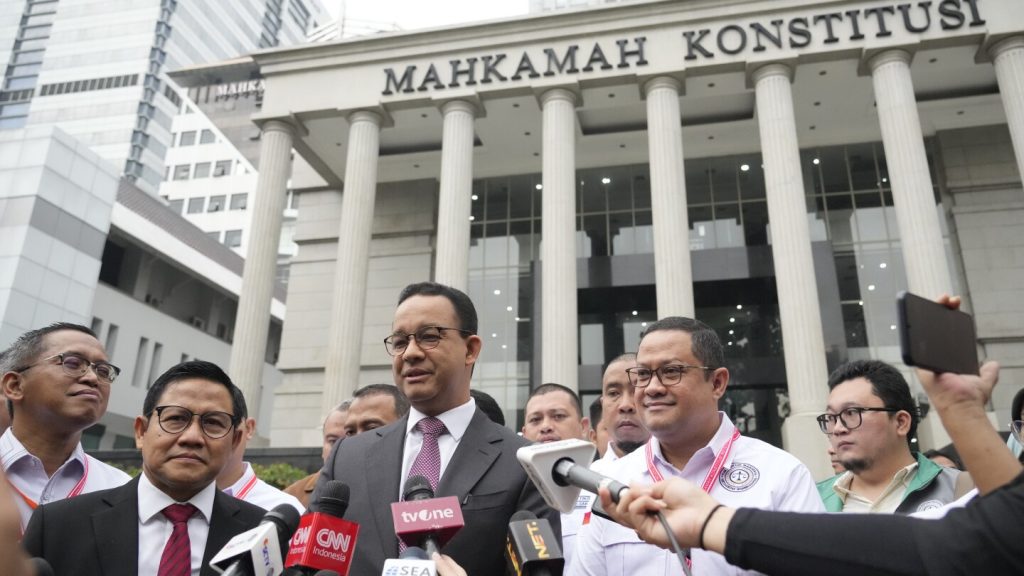The top court in Indonesia is currently hearing appeals from two losing presidential candidates who are demanding a revote due to allegations of irregularities and fraud during the election. Defense Minister Prabowo Subianto won the election with a significant margin, but former Jakarta Gov. Anies Baswedan and former Central Java Gov. Ganjar Pranowo are arguing that the election was marred by irregularities. They are asking the Constitutional Court to annul the election results and order a revote. Both candidates presented their cases in person, focusing on allegations that the court and outgoing President Joko Widodo supported Subianto.
There were peaceful protests held near the court building by dozens of individuals declaring that they would oversee the trial. Indonesian presidents are expected to remain neutral in successor races, but Subianto, a former rival of Widodo, ran as his successor with Widodo’s son as his running mate. Baswedan and Pranowo argue that Widodo’s son should have been disqualified and are asking the court to bar him from a revote. They claim that regional officials were pressured or rewarded to influence political choices and that state social assistance was used to help a specific candidate.
Prominent lawyer Todung Mulya Lubis, who led Pranowo’s legal team, criticized the actions of the Constitutional Court, stating that it should not legitimize fraud and crime. Baswedan also highlighted the distribution of hefty social aid by the government during the election campaign and accused Widodo of using funds to sway voters. Subianto himself had previously challenged election results in 2019 but was rejected by the court. The current case will be decided by eight justices instead of the full nine-member court due to conflicts of interest involving certain judges.
The court proceedings will continue with responses from Subianto and the General Election Commission expected. The verdict is anticipated to be delivered on April 22 and cannot be appealed. Chief Justice Suhartoyo adjourned the hearing until the following day, emphasizing the need to reject intimidation and abuse of power in elections. The outcome of this case will have significant implications for the integrity of Indonesia’s democracy and the role of the Constitutional Court in upholding the rule of law. Both sides are presenting their arguments vigorously, underscoring the importance of transparency and fairness in electoral processes.


